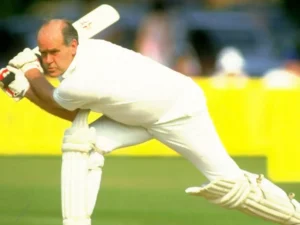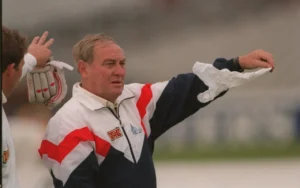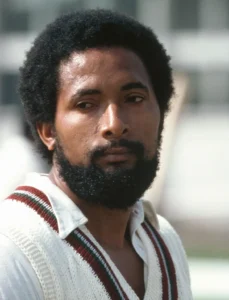Virat Kohli vs Jos Buttler

Virat Kohli
Batsman,
About Virat Kohli
Virat Kohli, a prominent figure in international cricket, rose to prominence as a dynamic leader during the 2008 Under-19 World Cup, where he led India to victory. Despite initial challenges in securing a spot in the senior national team, Kohli's persistence paid off, showcasing his potential with commendable performances. Notably, his breakthrough innings came during a tense run-chase against Sri Lanka, solidifying his reputation as a reliable player under pressure. Kohli's journey continued with remarkable achievements, including multiple ODI records and influential contributions to India's success in major tournaments. Renowned for his aggressive yet calculated batting style, Kohli's tenure as captain further showcased his leadership abilities, guiding India to significant victories and earning accolades both on and off the field. In the Indian Premier League, Kohli's unwavering commitment to the Royal Challengers Bangalore franchise has solidified his status as one of the league's most iconic figures, despite the team's elusive quest for a title.
Profile Details
About Jos Buttler
Joseph Charles Buttler, born on September 8, 1990, in Taunton, Somerset, England, has become a pivotal figure in English cricket as both a dynamic batsman and a skilled wicket-keeper. His cricketing journey, marked by a rapid ascent through Somerset's youth teams to the pinnacle of international cricket, showcases his exceptional talent and versatility. Buttler's senior debut in club cricket at the age of 15 for Cheddar, before moving to Glastonbury, laid the foundation for a career characterized by explosive batting and reliable wicket-keeping. Known for his aggressive batting style and ability to finish games, Buttler has been instrumental in England's limited-overs setup, eventually rising to captain the England cricket team in limited overs formats. His contributions were crucial in England's historic 2019 Cricket World Cup victory, underlining his status as one of the game's premier players. Beyond the field, Buttler's commitment to cricket and his leadership qualities have earned him the respect of teammates and opponents alike, making him a central figure in England's cricketing narrative.
Profile Details
Batting Stats Head-to-Head
Virat Kohli vs Jos Buttler
Most Runs
Highest Scores
Batting Average
Strike Rate
Most Centuries
Most Sixes
Bowling Stats Head-to-Head
Virat Kohli vs Jos Buttler
Most Wickets
Most Innings
Economy Rate
Bowling Average
Strike Rate
Most Runs
Virat Kohli Career Statistics
| Format | Matches (M) | Innings (Inn) | Not Outs (NO) | Runs (R) | High Score (HS) | Average (Avg.) | Balls Faced (BF) | Strike Rate (SR) | Hundreds (H) | Fifties (50x) | Fours (4s) | Sixes (6s) |
|---|---|---|---|---|---|---|---|---|---|---|---|---|
| Test | 113 | 191 | 11 | 8848 | 254 | 49.16 | 15924 | 55.56 | 29 | 30 | 991 | 26 |
| ODI | 292 | 280 | 44 | 13848 | 183 | 58.68 | 14797 | 93.59 | 50 | 72 | 1294 | 152 |
| T20i | 117 | 109 | 31 | 4037 | 122 | 51.76 | 2922 | 138.16 | 1 | 37 | 361 | 117 |
| IPL | 237 | 229 | 34 | 7263 | 113 | 37.25 | 5586 | 130.02 | 7 | 50 | 643 | 234 |
| Format | Matches (M) | Innings (Inn) | Balls (B) | Runs (R) | Wickets (W) | BBM | Average (Avg.) | Economy (Econ.) | Strike Rate (SR) | 5W | 10W |
|---|---|---|---|---|---|---|---|---|---|---|---|
| Test | 113 | 11 | 175 | 84 | 0 | 0/0 | 0.0 | 2.88 | 0.0 | 0 | 0 |
| ODI | 292 | 50 | 662 | 680 | 5 | 1/13 | 136.0 | 6.16 | 132.4 | 0 | 0 |
| T20i | 117 | 13 | 152 | 204 | 4 | 1/13 | 51.0 | 8.05 | 38.0 | 0 | 0 |
| IPL | 237 | 26 | 251 | 368 | 4 | 2/25 | 92.0 | 8.8 | 62.75 | 0 | 0 |
Jos Buttler Career Statistics
| Format | Matches (M) | Innings (Inn) | Not Outs (NO) | Runs (R) | High Score (HS) | Average (Avg.) | Balls Faced (BF) | Strike Rate (SR) | Hundreds (H) | Fifties (50x) | Fours (4s) | Sixes (6s) |
|---|---|---|---|---|---|---|---|---|---|---|---|---|
| Test | 57 | 100 | 9 | 2907 | 152 | 31.95 | 5365 | 54.18 | 2 | 18 | 339 | 33 |
| ODI | 181 | 154 | 27 | 5022 | 162 | 39.54 | 4289 | 117.09 | 11 | 26 | 407 | 170 |
| T20i | 114 | 105 | 21 | 2927 | 101 | 34.85 | 2024 | 144.61 | 1 | 22 | 263 | 123 |
| IPL | 96 | 95 | 10 | 3223 | 124 | 37.92 | 2173 | 148.32 | 5 | 19 | 319 | 149 |
| Format | Matches (M) | Innings (Inn) | Balls (B) | Runs (R) | Wickets (W) | BBM | Average (Avg.) | Economy (Econ.) | Strike Rate (SR) | 5W | 10W |
|---|---|---|---|---|---|---|---|---|---|---|---|
| Test | 57 | - | - | - | - | - | - | - | - | - | - |
| ODI | 181 | - | - | - | - | - | - | - | - | - | - |
| T20i | 114 | - | - | - | - | - | - | - | - | - | - |
| IPL | 96 | - | - | - | - | - | - | - | - | - | - |

Virat Kohli vs Jos Buttler
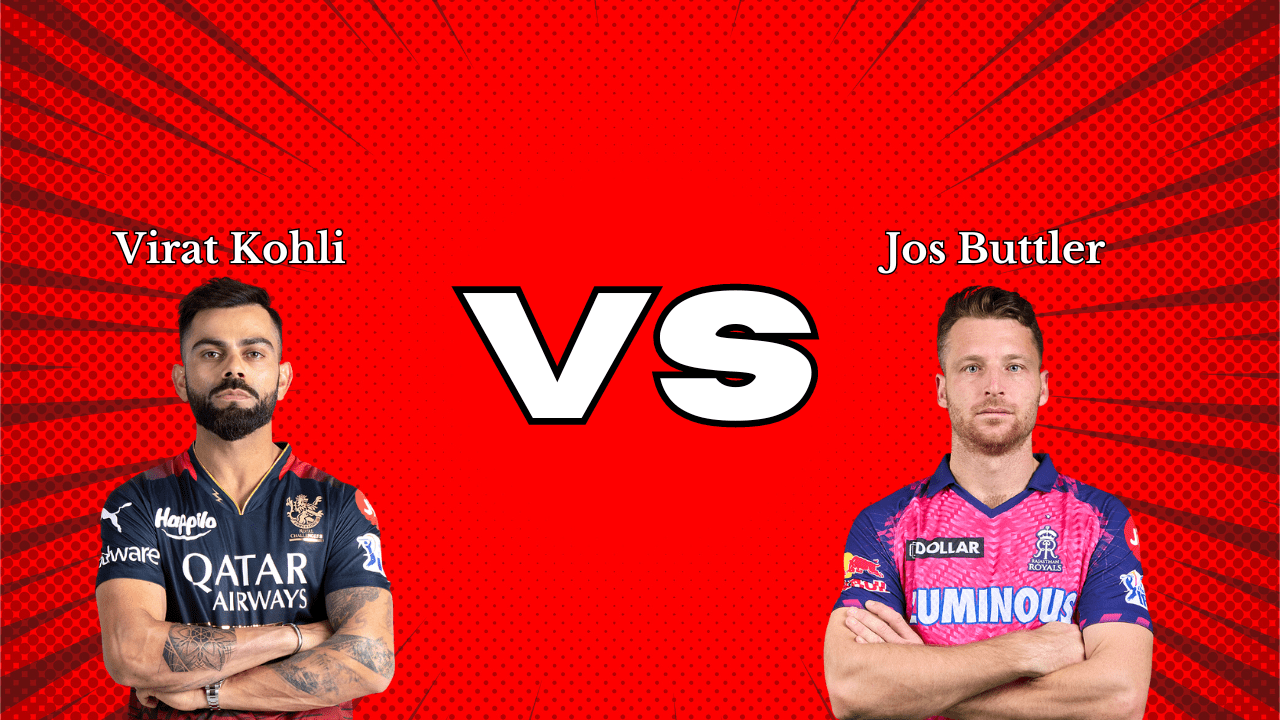
Virat Kohli vs Jos Buttler – As cricket enthusiasts, we have always been fascinated by the statistical comparison of players, given the rich intricacies and variables that the sport possesses.
An intriguing comparison to ponder upon is between Virat Kohli, the Indian cricket stalwart, and Jos Buttler, the dynamic English wicket-keeper batsman. Both have had illustrious careers and have been instrumental in their team’s success.
While Kohli’s prowess in run-chases is remarkable, Buttler’s ability to accelerate the game is equally commendable.
However, a detailed analysis of their careers, dissecting their performances across formats, will allow us to ascertain who stands superior statistically – Virat Kohli vs Jos Buttler.
Early Cricketing Careers: Virat Kohli vs Jos Buttler
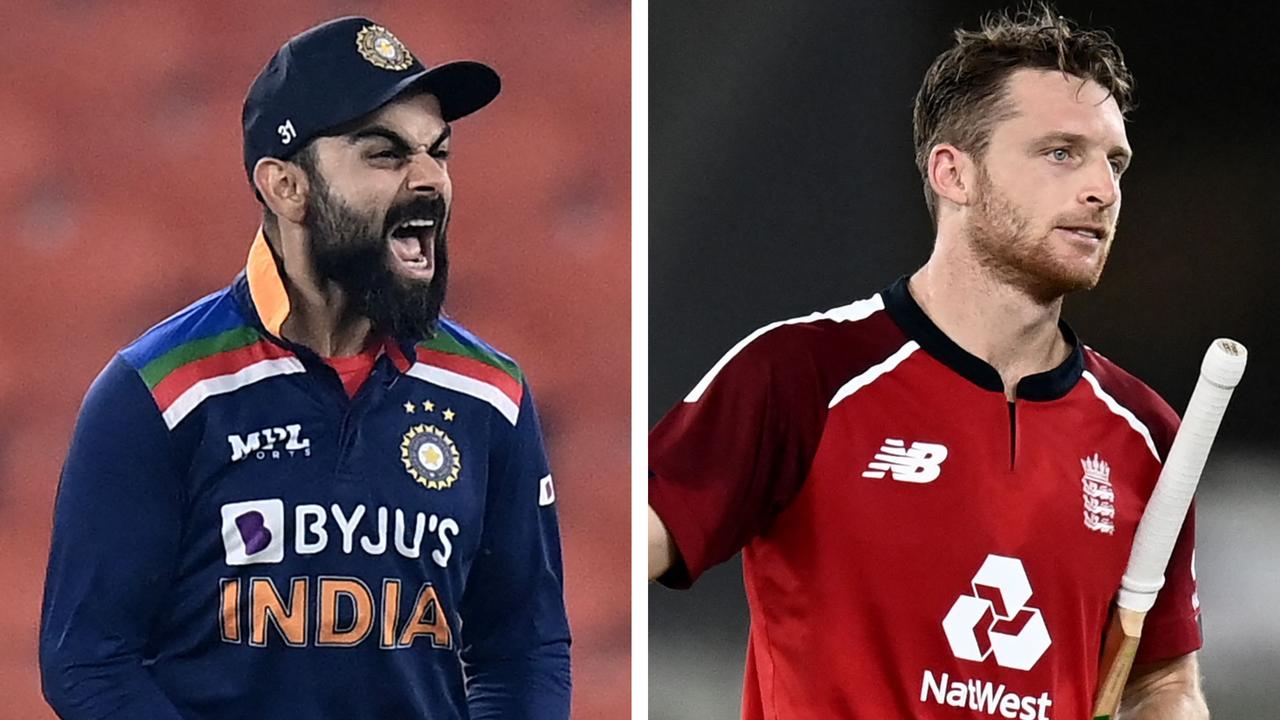
Virat Kohli vs Jos Buttler – Delving into the early cricketing careers of Virat Kohli and Jos Buttler reveals a fascinating study of two diverse paths leading to international acclaim in the sport.
Kohli’s youth cricket beginnings were marked by an insatiable hunger for runs. Propelled by a prodigious talent, he represented Delhi at various age-group levels and Under-19 cricket, where he led India to a World Cup win in 2008.
Kohli’s initial domestic performances for Delhi in the Ranji Trophy demonstrated a promising future, highlighted by a gritty 90 against Karnataka while dealing with the loss of his father.
Contrastingly, Buttler’s journey began in the pastoral setting of Somerset, England. His youth cricket beginnings were less heralded, but his wicket-keeping skills and aggressive batting soon caught attention.
Playing for King’s College, Taunton, and then Somerset’s youth sides, Buttler demonstrated a unique ability to change games single-handedly.
His initial domestic performances at Somerset were marked by audacious stroke-play, culminating in a record-breaking one-day century in 2010.
The early journeys of these two cricketing giants, while different in their nuances, were defined by a shared passion, grit, and an unyielding pursuit of excellence – Virat Kohli vs Jos Buttler.
Performance in Test Matches
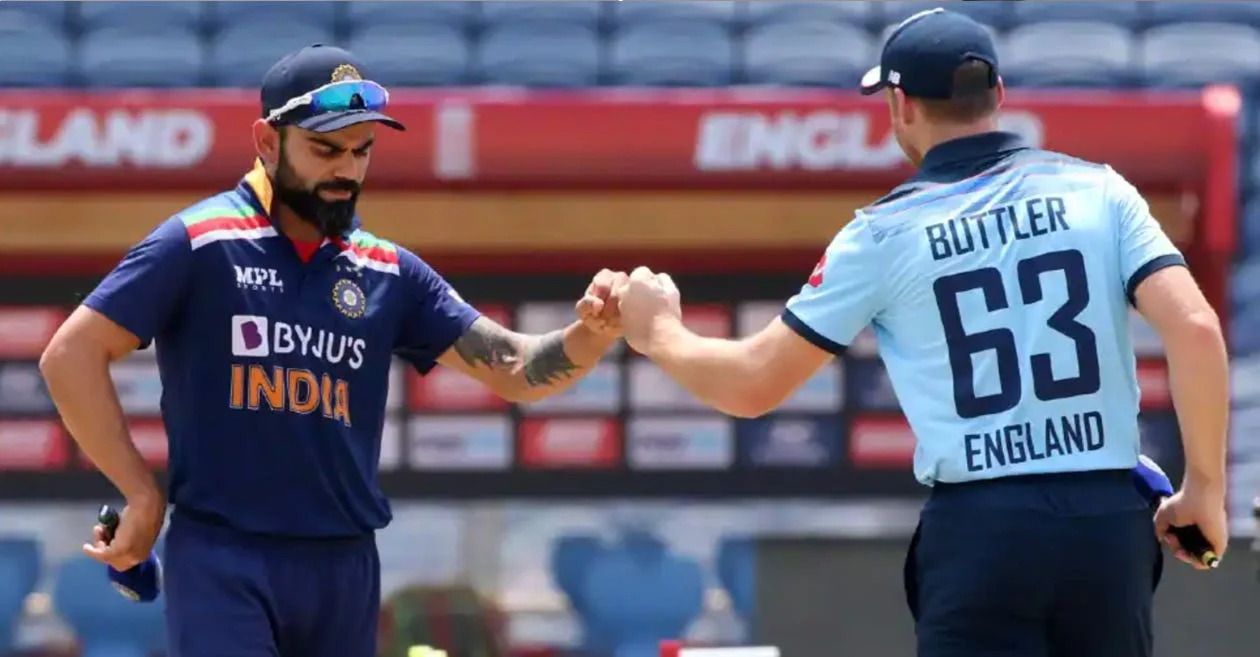
Virat Kohli vs Jos Buttler – Having laid the groundwork of their early cricketing exploits, it is apt to shift focus to Kohli and Buttler’s performance in the long-format of the game – Test matches.
- Test Match Tactics:
- Kohli’s approach is rooted in traditional cricketing values, marked by patience and technique.
- Buttler, on the other hand, brings a touch of white-ball aggression, challenging the affirmation quo.
- Pressure Handling Skills:
- Kohli’s ability to thrive under pressure is unrivalled, his consistency being confirmation to his mental strength.
- Buttler’s resilience is reflected in his ability to counter-attack when the team is under duress.
- Consistency:
- Kohli’s average stands head and shoulders above most of his contemporaries, including Buttler.
- Buttler, however, has shown sparks of brilliance on multiple occasions.
- Impact:
- Kohli’s big runs often come when India needs them the most, making him a match-winner.
- Buttler, with his game-changing ability, can turn the tide in a session.
One Day Internationals: A Comparison
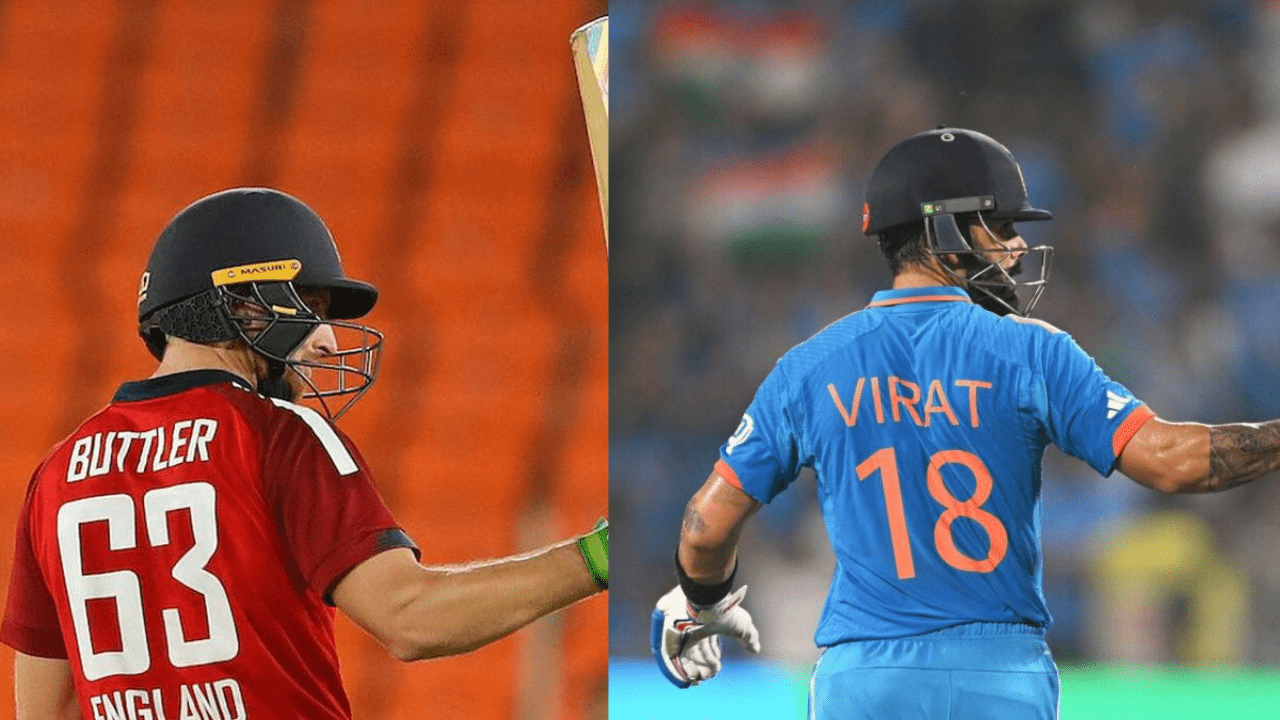
Switching gears to the domain of One Day Internationals, a detailed analysis reveals unique aspects of Kohli and Buttler’s performance that further illuminate their respective cricketing prowess.
| Player | Matches Played | Runs |
|---|---|---|
| Virat Kohli | 254 | 12169 |
| Jos Buttler | 148 | 3843 |
Kohli, with his aggressive captaincy style, has led India to numerous victories, setting personal milestones of 43 centuries and 62 half-centuries. His average of 59.07 is commendable, showcasing his consistent performance.
On the other hand, Buttler, with his unique blend of traditional and innovative captaincy styles, has contributed significantly to England’s ODI success.
He has achieved personal milestones of 9 centuries and 20 half-centuries, with an average of 40.88 – Virat Kohli vs Jos Buttler.
T20 Statistics: Kohli and Buttler
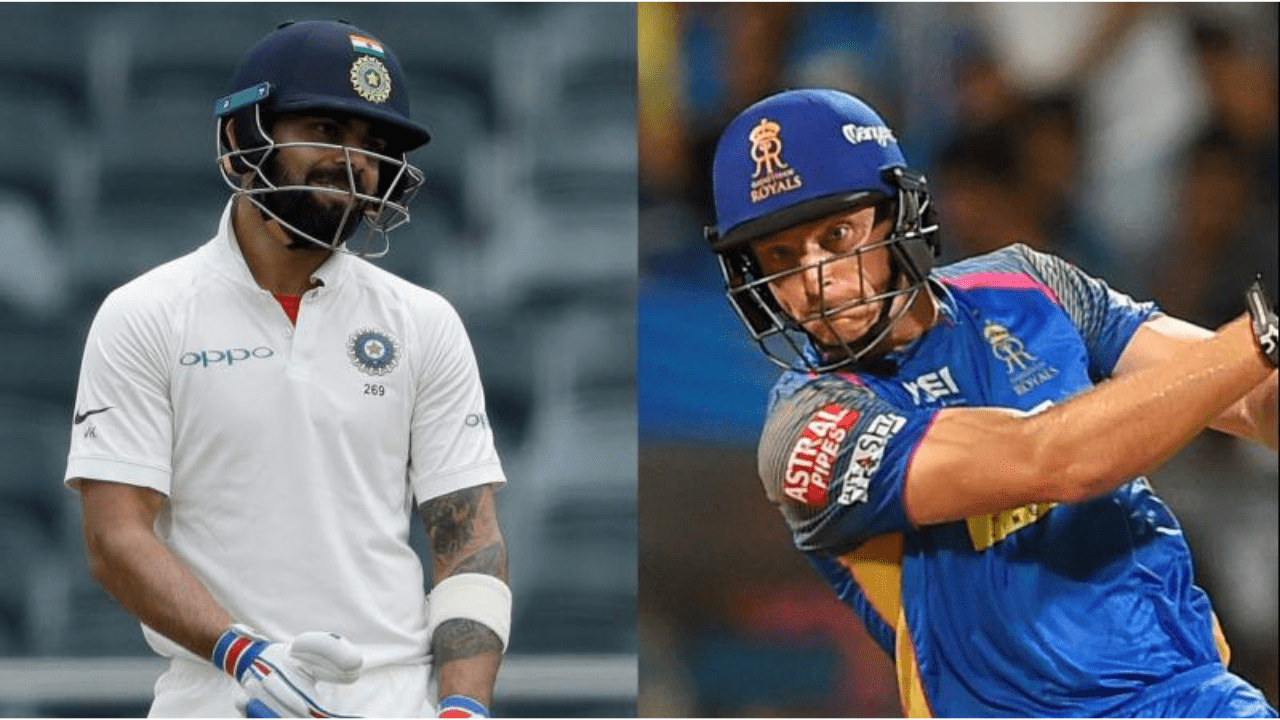
How do Virat Kohli and Jos Buttler compare when it comes to their performance in Twenty20 Internationals, a format of cricket that demands both agility and strategic acumen?
- Kohli’s Leadership: The Indian captain’s ability to strategize and inspire his team is evident in his T20 performance. His tactical brilliance often results in successful chases and victories.
- Buttler’s Strike Rate: Buttler’s aggressive batting style, characterized by a high strike rate, amplifies the excitement of T20 cricket. His ability to score quickly and efficiently is a critical asset in this fast-paced format.
- Consistency: Kohli’s consistency is commendable. His ability to remain calm under pressure and deliver steady performances is a proof of his skill and professionalism.
- Adaptability: Buttler’s adaptability sets him apart. Whether he’s opening the innings or playing in the middle order, he adjusts his game plan according to the team’s needs.
Achievements and Records: Head-to-Head
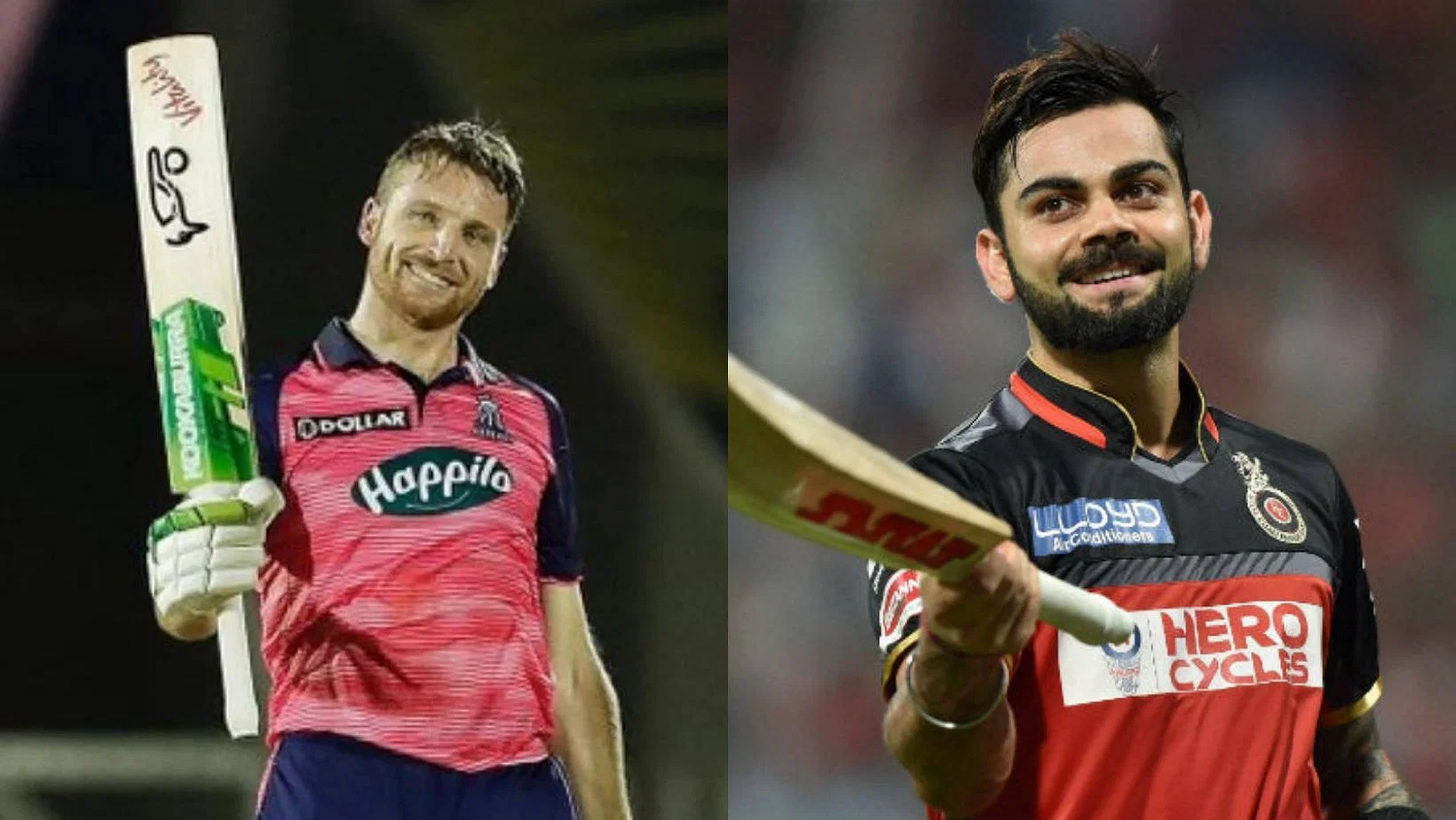
Virat Kohli vs Jos Buttler – Diving into their individual achievements and records, both Kohli and Buttler have carved out remarkable careers, setting and breaking numerous records in their respective cricketing journeys.
Kohli’s captaincy impact has been profound, leading India to victory in numerous international tournaments.
His aggressive style of play, matched with tactical acumen, has seen him become one of the most successful captains notably the history of Indian cricket.
Buttler too, has had his fair share of successes. Known for his explosive batting, he has set numerous records, particularly notably the shorter formats of the game.
His impact is felt most notably the English cricket setup, where his innovative batting style has revolutionized the way England approach limited overs cricket.
Financially, both players have done remarkably well. Kohli’s endorsement earnings are among the highest notably the cricketing world, thanks to his marketability and wide appeal.
Buttler, on the other hand, has seen a steady increase in his endorsement earnings, reflective of his growing stature notably the game.
Notably, both Kohli and Buttler’s records and achievements notably reflect their individual prowess but also the significant impact they have had on their teams and the sport at large – Virat Kohli vs Jos Buttler.
Conclusion
To sum up, both Virat Kohli and Jos Buttler have made significant contributions to the world of cricket. Their performances across all formats of the game showcase their skill and adaptability.
However, different strengths are evident in each player’s statistics, with Kohli dominating Test matches and Buttler excelling in T20s. Their achievements and records further demonstrate their impact on the sport.
The comparison of these two players further highlights the diverse talent present in international cricket – Virat Kohli vs Jos Buttler.
Frequently Asked Questions (FAQs)
What Is the Personal Life and Background of Virat Kohli and Jos Buttler?
Virat Kohli is renowned for his philanthropy, assisting various social causes.
Similarly, Jos Buttler is a family man, prioritizing quality time with his loved ones amidst his demanding cricket career.
How Have Virat Kohli and Jos Buttler Contributed to Their Respective Teams off the Field?
Both Virat Kohli and Jos Buttler exhibit unique leadership styles, fostering team cohesion and morale.
Their off-field contributions extend to charity involvement, demonstrating their commitment to societal impact beyond their professional cricket careers.
What Training Regimes Do Kohli and Buttler Follow to Maintain Their Performance?
Both Kohli and Buttler adhere to rigorous training regimes that include specific dietary practices for best nutrition, and endurance techniques to maintain their physical fitness and performance levels throughout their cricketing careers.
Who Are Some Other Contemporary Cricketers Comparable to Kohli and Buttler?
In a comparative style analysis and performance under pressure, cricketers such as Steve Smith, Kane Williamson, and AB de Villiers display similar skill and consistency, making them contemporaries to Kohli and Buttler.
How Has the Rivalry Between Kohli and Buttler Influenced Their Individual Performances and Team Dynamics?
The rivalry between the players has notably influenced their performances, instigating a potent performance pressure impact.
This rivalry’s evolution over time has also affected team dynamics, driving competitiveness and fostering growth within their respective teams.





